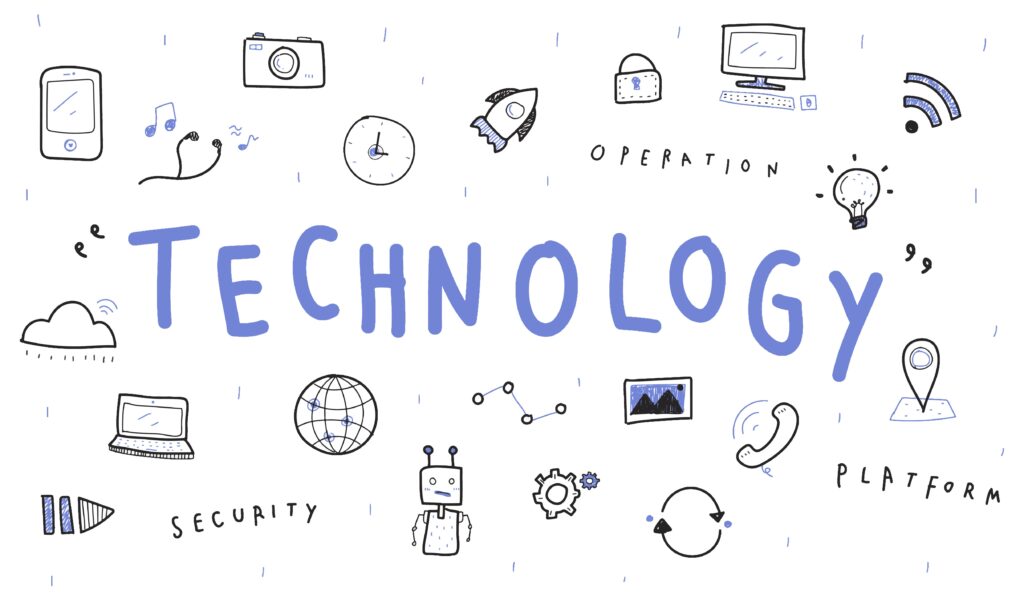You encounter technology every day, from the phone in your pocket to the car you drive and even the medical equipment that saves lives. But have you ever paused to consider what technology actually is? In our modern world, technology is often taken for granted, yet it plays a fundamental role in shaping society. Let’s explore the depth of what technology means, its evolution, the various types, and how it impacts your life.
At its core, technology refers to the tools, systems, or methods that are developed and used to solve problems, improve processes, and enhance human life. It isn’t just about gadgets or electronics; it’s a broader concept that encompasses any innovation that improves how you interact with the world. In short, technology is anything created to make life easier or more efficient.
What Is Technology?
When you think about technology, you might immediately imagine smartphones, computers, or robots. But the definition of technology goes beyond just modern-day gadgets. It can be understood as the application of scientific knowledge to practical ends. From the first wheel to artificial intelligence, technology has always been about solving problems and improving life. In its simplest form, it is humanity’s way of applying knowledge to create something that serves a purpose.
The roots of technology stretch back to the dawn of human civilization. It began with simple tools like stone axes and evolved into the complex, interconnected world we live in today. Early humans developed basic technologies such as fire, tools for hunting, and methods for building shelter, laying the foundation for everything that followed. The invention of the wheel, writing systems, and agriculture marked significant steps forward in the technological journey.
Technology influences nearly every aspect of your life, from how you communicate to how you travel, work, and even entertain yourself. It serves as a catalyst for social change, economic growth, and cultural transformation. Whether it’s the internet connecting you to the world or medical devices saving lives, technology has the power to alter societies. It’s not just about individual tools; it’s about systems of innovation that continuously drive human progress.
Evolution of Technology: Historical Overview
Technology has come a long way since the days of stone tools. It has evolved in response to human needs, creating a path of innovation that continues to accelerate.
The story of technology is the story of human ingenuity. From the earliest human-made tools to the complex machinery and digital systems of today, each stage in human history has been defined by technological progress. It’s fascinating to reflect on how technology has evolved over the millennia.
In prehistoric times, technology was as simple as fire, stone tools, and the domestication of animals. These early technologies laid the groundwork for future advances. Over time, the development of agriculture, metal tools, and writing systems enabled civilizations to grow. Fast forward to the Industrial Revolution, and you see the beginning of modern technology with the advent of steam engines, factories, and mass production.
Some of the most notable milestones in technological history include the invention of the printing press, the steam engine, and electricity. In more recent times, the development of computers, the internet, and mobile technologies has revolutionized how you live and interact with the world.
The wheel, electricity, the telephone, and the internet are all innovations that fundamentally changed the world. These breakthroughs didn’t just improve life—they reshaped society and the economy. For instance, the internet brought about the digital age, transforming everything from how you communicate to how businesses operate.
Types of Technology
Technology is not a monolith; it exists in many forms, each serving a unique purpose. Let’s dive into the different categories of technology that influence your daily life.
Information Technology
When you think of technology in the 21st century, information technology (IT) likely comes to mind first. IT refers to the systems and devices used to store, process, and communicate information. This includes computers, servers, software, and cloud computing. Whether you’re writing an email or managing a global enterprise, IT is at the core of how information flows in today’s world.
Within the realm of IT, software and hardware are the two main components. Hardware consists of physical devices like computers, smartphones, and servers. Software, on the other hand, refers to the programs and applications that run on these devices. Both are integral to modern life, working in tandem to allow you to perform a wide range of tasks.
Communication Technology
The way you communicate has drastically changed, thanks to technology. From the invention of the telegraph to smartphones, communication technologies have evolved to make it easier for people to connect across vast distances. Today, you rely on the internet, social media, and video conferencing to stay in touch with friends, family, and colleagues around the world.
The journey from the telegraph to smartphones is a testament to human innovation. The telegraph was the first technology to enable long-distance communication in real-time, followed by the telephone, radio, and television. Today, smartphones serve as all-in-one devices that allow you to talk, text, browse the internet, and more—all from the palm of your hand.
Transportation Technology
Transportation technology has revolutionized how you move through the world. From the invention of the wheel to modern-day electric vehicles, each innovation has made travel faster, safer, and more efficient. Cars, trains, airplanes, and even space travel are all products of this ongoing evolution.
Some of the key innovations in transportation include the invention of the airplane, which made global travel possible, and the automobile, which gave individuals the freedom to move on their own terms. More recently, electric and autonomous vehicles are pushing the boundaries of what’s possible in transportation.
Medical Technology
Medical technology has saved countless lives and improved the quality of healthcare around the globe. From the discovery of X-rays to the development of vaccines and robotic surgery, medical innovations continue to push the boundaries of what’s possible in health care.
Medical technology isn’t just about fancy equipment in hospitals. It’s about improving the delivery of care to make treatments more effective and accessible. Wearable health devices, telemedicine, and personalized medicine are just a few examples of how technology is making a difference in healthcare today.
Environmental Technology
As the world grapples with environmental challenges, technology is stepping in to offer solutions. Environmental technology, or “green tech,” includes innovations that aim to reduce pollution, conserve resources, and promote sustainability. Solar panels, electric vehicles, and water purification systems are just a few examples.
Environmental technologies focus on making human activities more sustainable. Renewable energy sources like wind and solar power are helping reduce reliance on fossil fuels, while advancements in recycling and waste management are addressing environmental degradation.
The Impact of Technology
Technology doesn’t just change how you live—it also profoundly impacts society in various ways, reshaping social interactions, economies, and even culture.
Social Impact
Technology has transformed the way people interact with each other. Social media, instant messaging, and video calls have made it easier to stay connected, but they’ve also changed the nature of relationships. While technology allows you to communicate more easily, it also raises questions about its impact on face-to-face interaction and emotional well-being.
You can now communicate with someone halfway around the world in seconds, but what does that mean for your social life? The ease of communication has changed the dynamics of relationships, with social media influencing everything from friendships to romantic partnerships. While it fosters connections, it also presents challenges such as online bullying and social isolation.
Economic Impact
Technology has been a driving force in economic growth. It enables businesses to operate more efficiently, reduces costs, and opens new markets. From automation to e-commerce, the role of technology in business cannot be overstated. However, it also raises concerns about job displacement and the need for new skills in the workforce.
In business, technology helps streamline operations, reduce costs, and increase productivity. Automation and artificial intelligence are transforming industries, allowing companies to do more with less. But this also comes with challenges, such as the need to reskill workers and address issues of technological unemployment.
Cultural Impact
Technology doesn’t just change how you work and communicate—it also influences culture. From the content you consume to the way you express yourself, technology has become intertwined with your identity. Social media, digital art, and even the way you experience entertainment have all been shaped by technological advancements.
Whether it’s the rise of internet memes or the shift to streaming services, technology is deeply embedded in culture. It has democratized content creation, allowing anyone with a smartphone to become a creator. This has both enriched cultural diversity and raised concerns about the spread of misinformation and the commodification of art.
Current Trends in Technology
Technology never stands still. The current trends show that the pace of innovation is accelerating, with emerging technologies poised to redefine industries and daily life.
Artificial intelligence (AI), blockchain, and quantum computing are just a few examples of emerging technologies that are reshaping the future. These innovations have the potential to revolutionize everything from healthcare to finance, offering unprecedented opportunities—and challenges.
Artificial intelligence is transforming industries by automating tasks, analyzing data, and even making decisions. Blockchain, the technology behind cryptocurrencies, is creating new ways of securing information and conducting transactions. Meanwhile, quantum computing promises to solve problems that today’s computers can’t even approach.
What will the future of technology look like? Predictions vary, but it’s clear that innovations in areas like AI, biotech, and space exploration will continue to push the boundaries of what’s possible. You may see a future where machines become more intelligent, transportation becomes autonomous, and healthcare becomes personalized.
Some experts predict that in the near future, you could be interacting with AI as naturally as you do with other people. Blockchain could reshape entire industries by making processes more secure and transparent. Meanwhile, advancements in space exploration might mean that colonizing other planets is no longer the stuff of science fiction.
Challenges and Ethical Considerations
While technology brings many benefits, it also raises critical ethical questions and challenges that you can’t afford to ignore.
In an age where data is the new oil, privacy concerns are at an all-time high. From social media platforms to smart devices, the amount of data being collected about you is staggering. This raises important questions about who owns this data and how it should be used.
With the rise of cyberattacks, data breaches, and identity theft, data security is more important than ever. Protecting your information in the digital age is not just about creating strong passwords; it’s about ensuring that companies and governments have robust cybersecurity measures in place.
Despite technological advancements, not everyone has equal access to technology. The digital divide refers to the gap between those who have access to modern technologies and those who don’t. This divide can be seen both globally, between rich and poor nations, and within societies, between urban and rural areas.
Bridging the digital divide requires not only providing access to technology but also ensuring that people have the skills to use it effectively. Without addressing this issue, technology could exacerbate inequalities rather than solve them.
With great power comes great responsibility, and nowhere is this truer than in technology. The ethical implications of innovations like AI, genetic engineering, and autonomous weapons raise important questions about how far you should go in the pursuit of progress.
Who is responsible when a self-driving car crashes, or when an algorithm makes a biased decision? These are just a few of the ethical dilemmas that you’ll need to grapple with as technology continues to advance.
What’s the Future of Technology?
The future of technology is brimming with exciting possibilities and transformative potential. Innovations such as artificial intelligence (AI), biotechnology, and renewable energy are set to redefine how we live, work, and interact. AI, for instance, is poised to enhance productivity and create new efficiencies across various sectors, from healthcare to transportation. Meanwhile, advancements in biotechnology promise breakthroughs in medicine, agriculture, and environmental sustainability, potentially improving the quality of life for millions.
However, this rapid technological progress comes with significant challenges. As we embrace new tools and capabilities, ethical considerations surrounding privacy, security, and the impact on jobs become increasingly critical. Questions about the responsible use of AI, the implications of genetic engineering, and the environmental footprint of emerging technologies need careful consideration.
Moreover, the digital divide poses a substantial barrier, as not everyone has equal access to technological advancements. Ensuring that the benefits of technology are shared broadly will be essential for fostering an inclusive future.
Ultimately, the journey of technology is far from over. The next chapter promises to be even more transformative, requiring us to strike a balance between innovation and ethics, shaping a future that benefits all of humanity.
Conclusion
Technology is an ongoing journey, one that reflects the human desire to innovate and improve. As you look to the future, it’s clear that technology will continue to shape your life in profound ways. But as you embrace these changes, it’s essential to remain mindful of the challenges and responsibilities that come with such power. The future of technology is bright, but it’s up to you to ensure that it’s a future that benefits everyone.

The Chief Author and Editor at Intothecommerce. As a seasoned expert in digital marketing, I direct the site’s strategic content and ensure every piece meets the highest industry standards. My insights drive our coverage on SEO, paid media, and cutting-edge marketing technology.





3 thoughts on “What Is Technology? The Definition, Types, and Impacts”
Great flow and delivered what had to be delivered about the topic. Keep doing it.
Your posts are consistently well-researched and informative, and I appreciate how thorough and detailed your content is.
Hello Intothecommerce team,
The content found on your website is truly impressive and serves as an excellent resource for enhancing people’s knowledge. It is clear that a lot of effort goes into creating and maintaining such high-quality information. Your dedication is evident and much appreciated by your audience. The topics, particularly on technology and software, you cover are relevant and engaging, and they provide valuable insights. Keep up the fantastic work, team. Your contributions are making a positive impact.